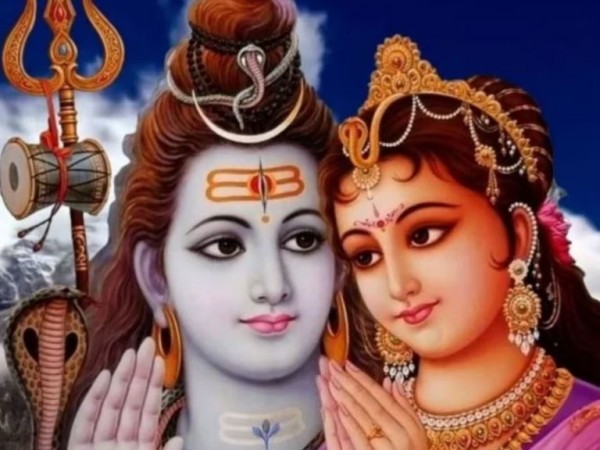
Shivratri and Mahashivratri are two terms often used interchangeably, yet they hold subtle differences in their meanings and significance within Hindu culture and spirituality. In order to understand the disparity between the two, it's imperative to delve into the etymology, religious context, cultural significance, and rituals associated with each.
Shivratri:
Shivratri, translating to "the night of Shiva," is a recurring event that takes place on the 14th day of every lunar month, specifically during the Krishna Paksha, or the waning phase of the moon. It holds special significance in Hindu culture and spirituality, serving as a time for devotees to honor and worship Lord Shiva, one of the principal deities in Hinduism.
1. Etymology and Meaning:
The term "Shivratri" is derived from two Sanskrit words: "Shiva," which refers to Lord Shiva, and "ratri," meaning night. Therefore, Shivratri symbolizes the night dedicated to the worship and adoration of Lord Shiva. The monthly occurrence of Shivratri provides devotees with regular opportunities to engage in spiritual practices and deepen their connection with the divine.
2. Rituals and Observances:
Devotees observe Shivratri by fasting, performing rituals, and offering prayers to Lord Shiva throughout the night. The fasting may involve abstaining from food and water for the duration of the day and night, or adhering to specific dietary restrictions. During Shivratri, devotees visit Shiva temples, chant sacred mantras such as the "Om Namah Shivaya," and participate in religious ceremonies to seek the blessings of Lord Shiva.
3. Spiritual Significance:
Shivratri holds immense spiritual significance in Hinduism, emphasizing the principles of austerity, devotion, and self-discipline. It serves as a reminder for devotees to detach from worldly distractions and focus on spiritual pursuits. Through fasting, prayer, and meditation, devotees aim to purify their minds and hearts, seeking the grace and blessings of Lord Shiva for spiritual growth and liberation.
4. Regional Variations:
The observance of Shivratri may vary across different regions and communities within Hindu culture. While some regions may celebrate Shivratri with grand festivities and elaborate rituals, others may observe it in a more subdued manner. Despite regional variations, the underlying reverence and devotion to Lord Shiva remain consistent among devotees during Shivratri.
Mahashivratri:
Mahashivratri, also known as "the great night of Shiva," is an annual festival celebrated with great fervor and devotion by millions of Hindus worldwide. It occurs once a year, typically in the Hindu month of Phalguna (February or March), on the 14th day of the waning moon. Mahashivratri holds profound significance in Hindu mythology and spirituality, commemorating various divine events associated with Lord Shiva.
1. Mythological Significance:
Mahashivratri is steeped in rich mythological narratives that highlight the greatness and benevolence of Lord Shiva. One of the most prominent legends associated with Mahashivratri is the divine marriage of Lord Shiva and Goddess Parvati. According to Hindu mythology, on this auspicious night, Shiva and Parvati were united in celestial matrimony, symbolizing the divine union of Shakti (the feminine energy) and Shiva (the masculine principle).
2. Cosmic Dance of Shiva:
Mahashivratri is also celebrated as the night when Lord Shiva performed the Tandava, the cosmic dance of creation, preservation, and destruction. It is believed that during the Tandava, Shiva's ecstatic dance reverberated throughout the cosmos, giving rise to the creation and dissolution of universes. The Tandava represents the dynamic interplay of cosmic forces and the eternal cycle of life, death, and rebirth.
3. Nectar of Immortality:
Another significant legend associated with Mahashivratri is the churning of the ocean (Samudra Manthan) by the Devas (celestial beings) and Asuras (demons) to obtain the nectar of immortality (amrita). During the churning, a deadly poison known as Halahala emerged from the ocean, threatening to engulf the world in destruction. In his compassion for all beings, Lord Shiva consumed the poison to save the universe, holding it in his throat, which turned blue. This act of self-sacrifice earned Lord Shiva the epithet "Neelkanth" (the one with a blue throat).
4. Spiritual Observances:
Mahashivratri is observed with fervent devotion and spiritual practices by devotees of Lord Shiva. Throughout the night, devotees engage in fasting, meditation, chanting of sacred mantras, and performing abhishekam (ritual bathing) of the Shiva Linga with water, milk, honey, and other auspicious substances. The continuous vigil and worship during Mahashivratri symbolize the devotee's commitment to seeking divine blessings, inner transformation, and spiritual enlightenment.
5. Cultural Celebrations:
Mahashivratri is celebrated with grandeur and enthusiasm across India and other parts of the world with significant Hindu populations. Temples dedicated to Lord Shiva are adorned with flowers, lights, and decorations, creating an atmosphere of reverence and devotion. Cultural programs, devotional songs, and spiritual discourses are organized to inspire devotees and foster a sense of unity and collective devotion.
In conclusion, while both Shivratri and Mahashivratri revolve around the worship and adoration of Lord Shiva, they differ in their frequency, mythological significance, and cultural observances. Shivratri serves as a monthly reminder of devotion and austerity, whereas Mahashivratri is celebrated annually as a grand festival commemorating the divine manifestations and cosmic deeds of Lord Shiva. Both occasions provide devotees with opportunities for spiritual introspection, inner transformation, and seeking the blessings of the divine.
Unique truth of Mughal history: Akbar's mother used to read Ramayana!
When is Mahashivratri? Learn the auspicious time and method of worship
Do you also want to enter a new house, then know this important thing now